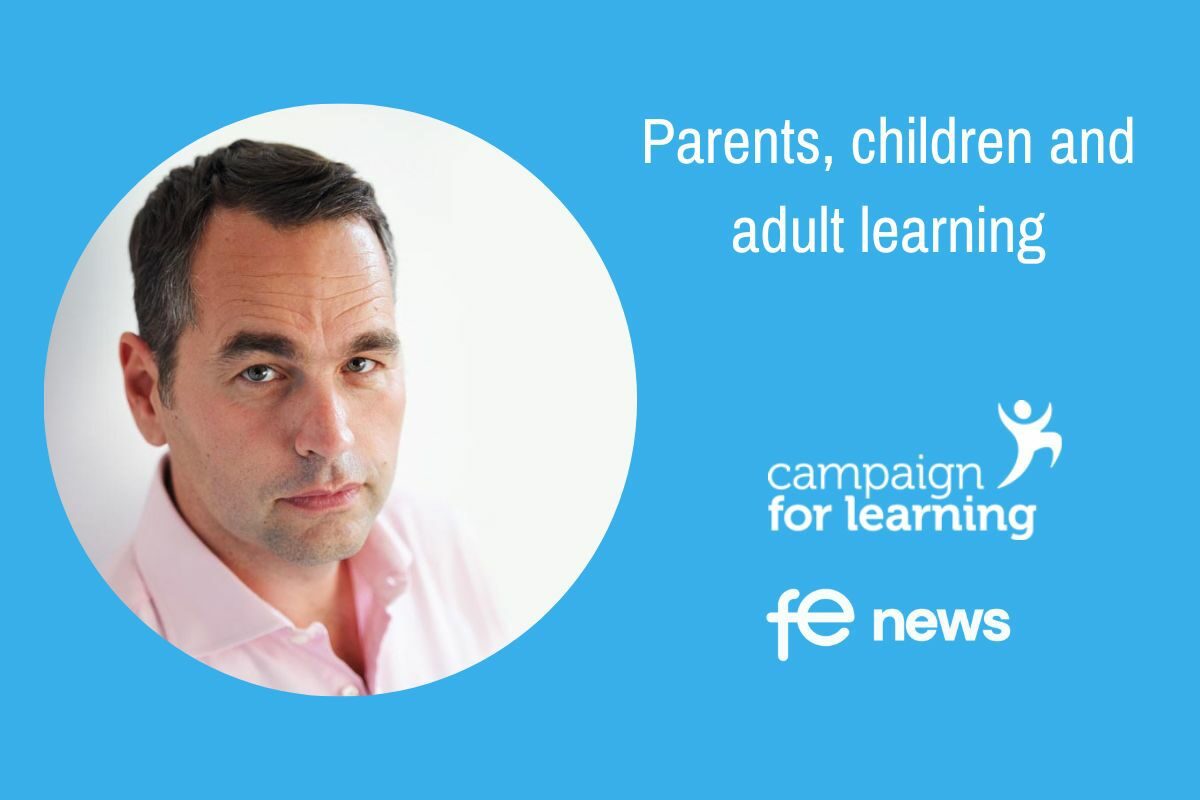Focusing on Parents to Improve Social Mobility

Parenting is the taboo topic in social mobility. Unsurprisingly, how parents interact with their children has a profound impact on their futures. Yet politicians are loathe to do anything to improve parenting when it comes to education. They fear they will be seen as encroaching on people’s freedoms to live their lives as they see fit.
Silence in the Schools White Paper
In the run-up to this year’s Government white paper on schools, I pleaded with officials to consider ideas to help improve learning in the home. The evidence is clear: unless we enable all parents to support their children in reading and other core learning activities, then many of our children will suffer from low levels of literacy and numeracy. My calls fell on deaf ears. The 2022 paper, I dislike to say, with its focus on trying to improve schools, will be yet another failed attempt to address an issue that has plagued the education system for at least several decades.
In my book The Good Parent Educator I showed how simple habits can make life-defining differences. Sitting down with a book with a son and daughter each day just for 20 minutes, for example, can transform their children’s learning.
All About Parents
The study of social mobility is in some sense all about parents. We study the link between the characteristics of parents and their offspring. We want a society in which children’s futures are shaped by their talents and hard work (and a little luck). Instead, we find that home background has a significant impact on future outcomes. The stronger the link between parents and their children, the lower social mobility is. And the bad news is that the Millennial generation are the first generation since the War who are likely to do less well on average than their parents.
Families Matter
Studies reveal that families matter even more than we first thought. This is partly due to extended family effects – children are influenced not just by their parents but other family members as well. Grandparents for example can contribute in many ways; paying for expensive school fees or stepping into help with child rearing duties.
Education System is Not Enough
Teachers can transform young lives. But schools, colleges and universities are not the great social levellers we sometimes imagine. The education system is a necessary but not sufficient driver in levelling the playing field of life. One simple reason for this is that children spend more of their lives outside than inside the school gates, and the divides in society have widened for recent generations.
We observe an increasing family divide in the early 21st century. Children with non-graduate parents are far less likely to grow up in two parent homes and family-owned homes than children with graduate parents. Children of the richest households meanwhile are twice as likely to benefit from private tutoring than children from the poorest households. These stark divides do not bode well for future social mobility.
Tackling the parenting divide is riddled with political sensitivities. It is devilishly hard to do. But if we are serious about improving social mobility it is just too important to ignore. The time has come to tackle social mobility’s taboo subject. Here is what we should do:
Recommendation 1
All schools should be incentivised to develop highly targeted, effective parent engagement plans. Schools remain the trusted anchor organisations in local communities. Plans would encourage schools to better understand their parents and children, for example through deep listening exercises. They would ensure they are genuinely inclusive to all parents, and empower parents to take on the habits that help children develop. This would be a win-win strategy for teachers, as children would be better prepared to learn in classrooms.
Recommendation 2
The Government should support a comprehensive early years literacy programme combining public messaging (akin to the 5-a-day health campaign) with on-the-ground support, such as health visitors providing new parents with basic guidance on oracy and literacy and parenting classes as part of Family Hubs.
The public campaign could, for example, focus on the benefits of reading (book sharing with children), regular routines (regular meal, bath, bedtime) and readiness (making sure children get enough food and sleep to learn when they are at school).
Recommendation 3
A dedicated programme should be initiated to develop evidence-informed approaches to help parents change habits in the home environment to support learning. Recent trials outside the UK have produced promising results using low-cost behavioural tools to help motivate disadvantaged parents to read with younger children. We desperately need more research in this area.
By Lee Elliot-Major, Professor of Social Mobility, University of Exeter
Read Campaign for Learning‘s press release here.
Parents, Children and Adult Learning: Family Learning Policy in the 2020s
Read previous articles here:
- Driving-Up Parental Engagement in Educational Catch-Up, Sam Freedman, Research Fellow, Institute for Government
- Focusing on Parents to Improve Social Mobility, Lee Elliot-Major, Professor of Social Mobility, University of Exeter
- Encouraging Parental Involvement in Children’s Learning Through School Communication, Adrian Burt, Founder, MarvellousMe

Responses